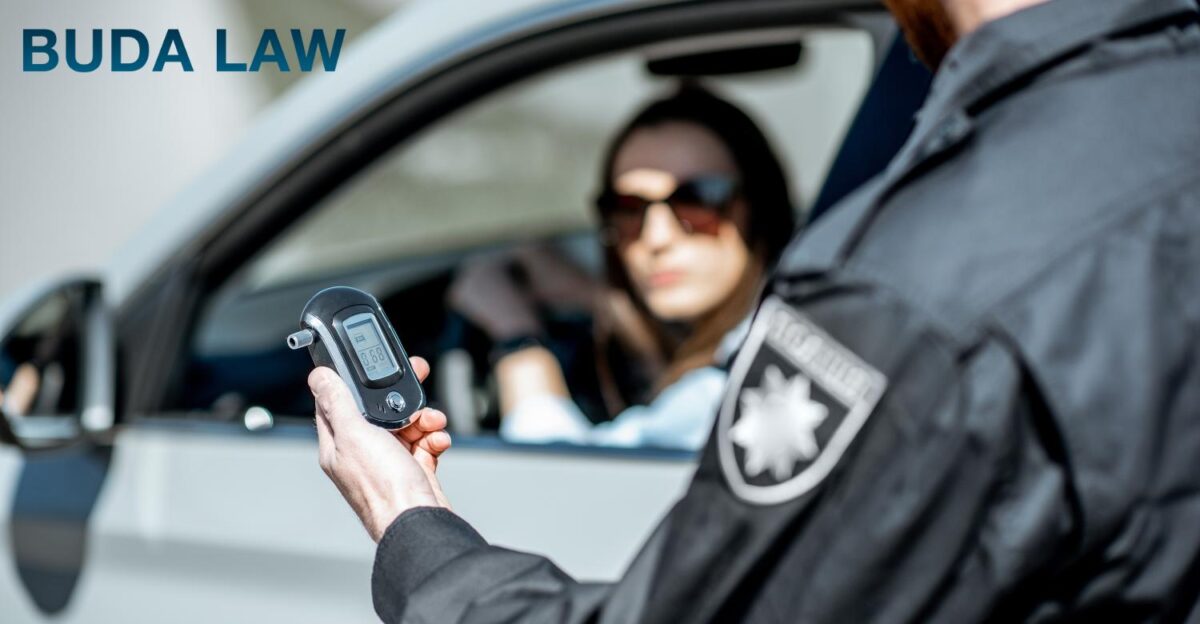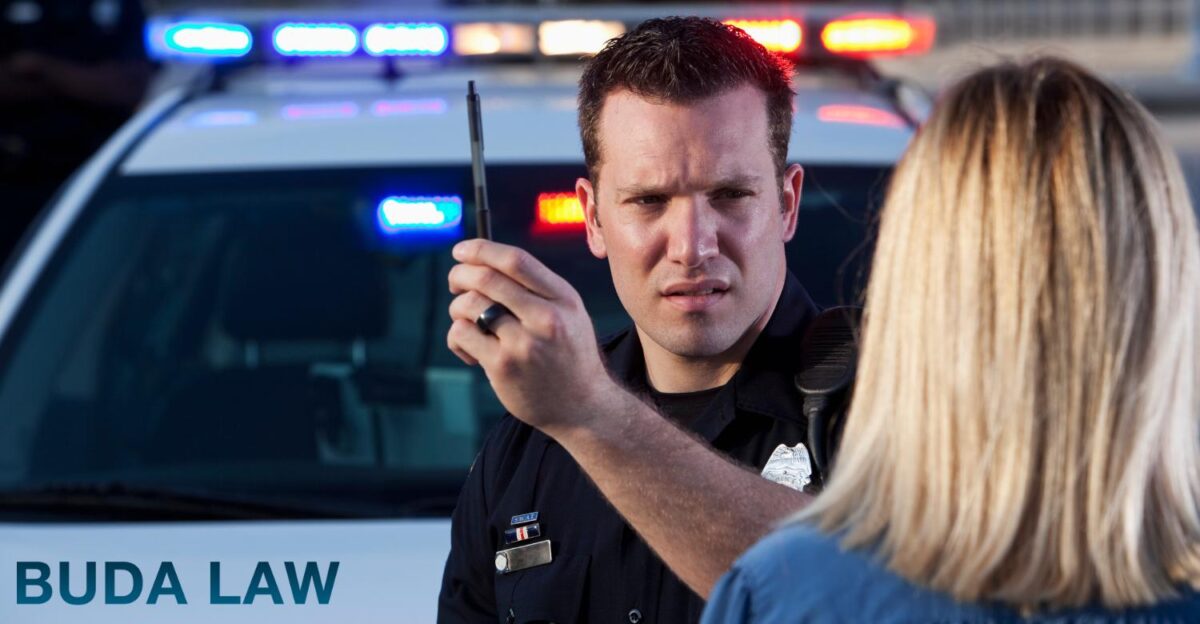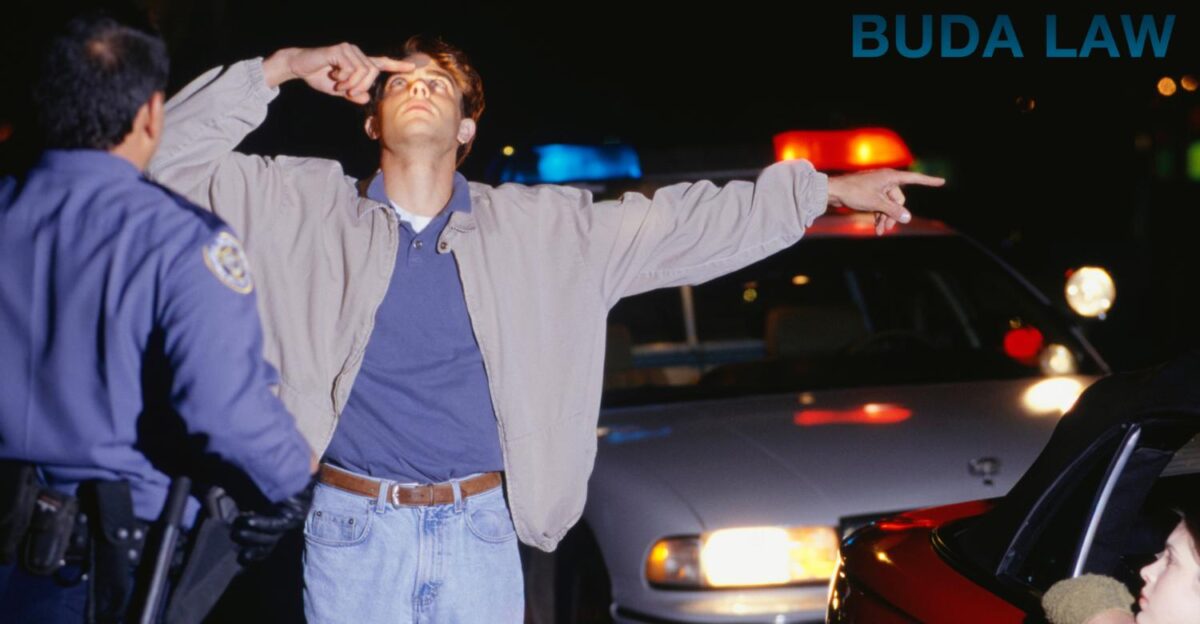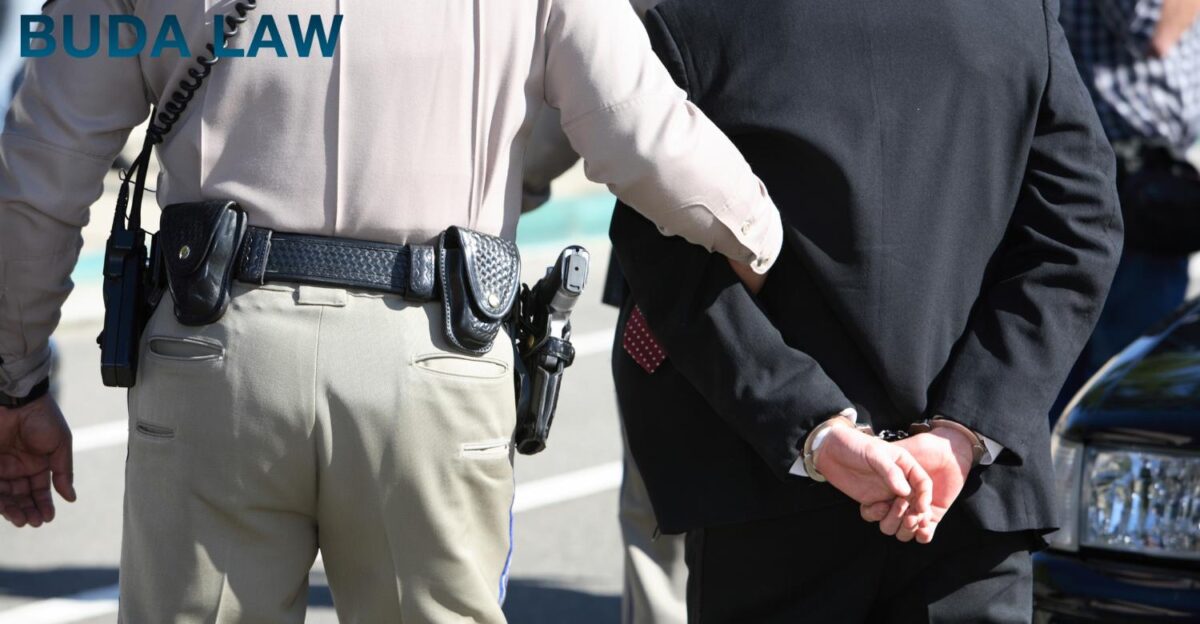So you went out last night and on the way home you got pulled over for suspicion of driving under the influence (DUI). What should you do? In this post, Tampa DUI defense lawyer Andrew Buda of Buda Law answers that question and more.
What Should I Do After Being Pulled Over for Drunk Driving?
If you are pulled over for a suspected DUI, it’s important to remain calm and follow the officer’s instructions. If the officer asks you to take a breath or chemical test to determine your blood alcohol concentration (BAC), you generally have the option to comply or politely decline. However, it’s important to note that refusing a chemical test may result in immediate consequences such as license suspension or other Florida DUI penalties, but complying may result in you ultimately being found guilty of a DUI.
During the stop, avoid making any sudden movements or behaving in a confrontational manner, as this may escalate the situation. If the officer asks you how much alcohol you have consumed, avoid incriminating yourself. Keep in mind that anything you say can be used against you in a police report or in court.
Ultimately, the best course of action is to cooperate with the officer and remain respectful throughout the encounter. If you are arrested for DUI, it’s important to seek legal advice from an experienced attorney who can help you understand your rights and options.

How Can I Avoid a DUI Conviction?
To best answer this question, it is helpful to start with the end in mind. The ultimate goal, as far as the state prosecutor is concerned, is for you to be found guilty of DUI. And how in the world does she do that? By using evidence against you and applying that evidence to Florida DUI law. And that is what it boils down to. So really, the best way to answer that question is to give the state prosecutor as little negative evidence and as much positive evidence as possible.
What is Evidence?
Evidence is any statement, video, testimony by the police, or any documents that are gathered during the investigation of your case. In DUI cases specifically, negative evidence includes any videos, photographs, or other digital evidence of you taken from the moment you are pulled over until the moment you are released from jail that would be used to prove that you are more likely to be under the influence of drugs or alcohol. It also includes every observation that the police officer has made about you including your physical appearance, the way you walk, talk, or smell, and any negative interaction with the officer. Negative evidence also includes how you perform on certain sobriety tests administered by the police at the traffic stop. These include allowing the officer to monitor your eyes or perform a breathalyzer exam, walking a straight line, standing on one foot, saying the alphabet without singing, and any other modified field sobriety exercises.

What is Positive Evidence?
Positive Evidence is any evidence that is good for your case and that causes the charge to be more easily reduced, dropped, or won at trial. Examples would be being polite in your interactions with a police officer and politely declining to perform any and all of the field sobriety tests mentioned above. When asked why you are declining, you politely inform the officer that your attorney (Andrew Buda) informed you not to. Positive evidence is essentially not creating the negative evidence mentioned above. Without the negative evidence, the officers and prosecutors will have a much tougher time proving a case against you.
Please be advised, during a traffic stop, you must still provide the officer with the required driver’s license, registration, and proof of insurance.
WARNING: A consequence of the following this advice will almost always get you arrested and booked for a DUI. However, you give yourself a much better chance of fighting the charge than if you would have been arrested for DUI regardless.
The reason is that without giving the state prosecutor evidence, it makes her life very difficult to prove you were driving under the influence. However, if you know that you are not DUI, it might be in your best interest to do what they ask. If you are close to DUI or think that the police will arrest you regardless, the above would help if you were to be arrested for DUI. If the police ask to look into your eye’s to dispel their suspicion of DUI, politely tell them that your lawyer told you not to do that. When they ask you to step out of the car to do some field sobriety exercises, again, politely inform them that your lawyer told you not to do that.
In addition, refusing to provide a lawful breath sample can and will result in a loss of driving privileges.

Types of DUI Tests
There are several different types of DUI tests that police officers can use to determine whether a driver is impaired. Here are some of the most common types of DUI tests:
- Breathalyzer Test: A breath test, also called a preliminary alcohol screening or PAS test, measures the level of alcohol in a person’s breath. It works by analyzing the amount of alcohol in the air a person exhales.
- Blood Test: This test measures the amount of alcohol or drugs in a person’s bloodstream. A blood sample is taken and sent to a laboratory for analysis.
- Field Sobriety Test: This test involves a series of physical and mental tests that a driver must perform while the officer observes. These tests assess a driver’s balance, coordination, and ability to follow instructions.
- Urine Test: This test measures the amount of alcohol or drugs in a person’s urine. Like the blood test, a sample is taken and sent to a laboratory for analysis.
It’s worth noting that not all of these tests are equally reliable or accurate, and some states may not use all of them. In some cases, multiple tests may be used to provide more conclusive evidence of impairment above the legal limit.
What If I’m Arrested? What Do I Do Then?
If you are arrested for DUI, it’s important to remain calm and follow the officer’s instructions. It’s advisable to remain silent and avoid making any statements until you have spoken with a lawyer who can help you understand your rights and options.
Resisting arrest or becoming combative with the police is not advisable and may lead to additional charges or jail time. If you are taken to the police station, it’s important to cooperate with the booking process and follow any instructions given by the officers.
Ultimately, the most important step you can take if you are arrested for DUI is to seek the advice of a good lawyer who can help you understand your legal options and defend your rights in court. A skilled DUI lawyer can help you mitigate the potential consequences of a DUI arrest and may be able to help you avoid or minimize jail time.

Charged With a DUI? Call Tampa DUI Attorney Andrew Buda ASAP
If you are facing DUI charges in Florida, you need an experienced criminal defense attorney who can help protect your rights and defend your case in court. Andrew Buda of Buda Law is a skilled Tampa criminal defense attorney with years of experience representing clients facing DUI charges in Florida. He understands the complexities of DUI law and the legal process and has a proven track record of success defending his clients against these charges. Andrew Buda is dedicated to providing personalized legal representation and will work tirelessly to protect your rights and minimize the potential consequences of a DUI conviction. If you are facing DUI charges in Florida, contact Buda Law by calling 813-322-2832 today to schedule a consultation and learn more about your legal options.
